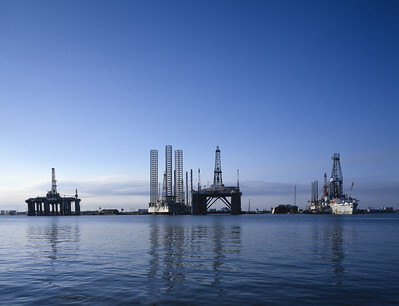WASHINGTON — Climate experts urged skeptical lawmakers Thursday to consider the environmental impact of new oil and gas lease sales in the Gulf of Mexico.
“I want you all to remember that economic gain does not outweigh the devastation we are feeling right now,” climate scientist Kristina Dahl told the House Energy and Mineral Resources subcommittee Thursday.
Lawmakers on both sides of the aisle pressed the experts who appeared before them about whether reducing oil and gas drilling on the Gulf Coast could reduce overall global emissions.
Subcommittee Chairman Alan Lowenthal, D-Calif., began by asking Max Sarinsky, an attorney from the Institute for Policy Integrity at New York University, what he thinks of the argument that not drilling in the U.S. would simply increase drilling in other countries and therefore increase emissions.
“That is simply not how economics works,” Sarinsky said. “It violates basic supply and demand principles, and in reality while there would be some substitution effect, what we see is that extraction on federal land leads to a very large increase overall in total combustion and production. So as a result you have a very large increase in greenhouse gas emissions.”
Dahl pointed out that the United States has disproportionately contributed to emissions since the Industrial Revolution by producing 25% of emissions in history but only containing 4% of the world’s population.
“For every ton of emissions we’ve reduced in the United States, China’s gone up by four. This doesn’t make sense,” said Rep. Garret Graves, R-La., who argued that stopping domestic production in the U.S. only increases dependence on foreign energy sources with greater emissions.
“Are any of the witnesses aware of any evidence that shows restricting oil and gas production in federal waters will actually result in decreasing total consumption of oil in the U.S.?” asked fellow GOP Rep. Jerry Carl of Alabama.
In response, Sarinsky said reducing fossil fuel extraction domestically is substituted in part by renewable energy consumed in the U.S.
Beverly Wright, executive director of the Deep South Center for Environmental Justice, said it is hard to understand how the economic impact of reducing drilling outweighs the health of people in states like Louisiana, which has one of the highest cancer rates in the nation.
“The fact that we are thinking about leasing more land is something that boggles my mind because we already don’t know how to deal with the pollution right now,” she said. “It’s hard for us to understand how more of something that’s bad for you is better for all of us.”


